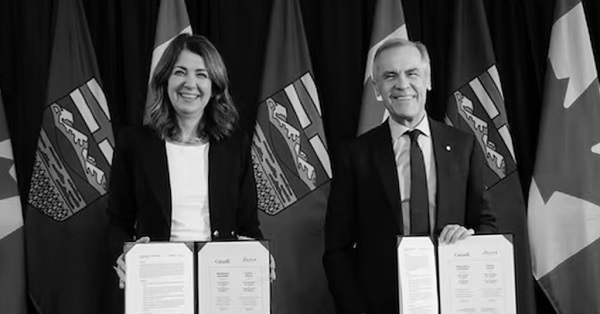Uncategorized
Thai, Saudi officials meet over case of young Saudi woman

BANGKOK — Thailand’s immigration police chief met Tuesday with officials from the Saudi Embassy in Bangkok, as Saudi Arabia tried to distance itself from accusations that it tried to block a young woman’s effort to flee her family and seek asylum abroad.
Rahaf Mohammed Alqunun arrived in Bangkok from Kuwait late Saturday after slipping away from her family, whom she accused of abusing her. The 18-year-old was stopped by officials in Thailand who confiscated her passport.
Her urgent pleas for help over Twitter from an airport hotel room garnered tens of thousands of followers and the attention of the U.N.’s refugee agency, the U.N. High Commissioner for Refugees. Public pressure prompted Thai officials to return her passport and let her temporarily stay in Thailand.
Alqunun alleged several times that Saudi officials were involved in seizing her passport. However, in repeated statements, including one issued Tuesday, the Saudi Embassy in Thailand has said it is only monitoring her situation.
The statement, which described Alqunun’s case as a “family affair,” said the kingdom did not demand her deportation to Saudi Arabia. The embassy — and Thai officials — earlier also said that Alqunun was stopped by Thai authorities in Bangkok because she did not have a return ticket, a hotel reservation or itinerary to show she was a tourist, which appeared to have raised a flag about the reasons for her trip.
Thailand’s immigration police chief, Maj. Gen. Surachate Hakparn, told reporters Tuesday that Saudi diplomats told him they are satisfied with how her case had been handled.
“The position of two countries on this matter is the same — that the priority is to provide her safety. We are both concerned for Miss Rahaf’s safety and well-being,” said Surachate. “The Saudi charge d’affaires said he is satisfied and expressed confidence on the work of Thai immigration, of the Thai government, and of the Foreign Ministry yesterday.”
Surachate said Alqunun’s father and brother were due to arrive soon in Bangkok, but that it was her decision whether to meet with them. On Twitter, she has expressed fear of such a meeting. The father had previously been expected Monday night.
A spokesman for the U.N. High Commissioner for Refugees at its Geneva headquarters, Babar Baloch, said Tuesday it’s premature to say what will happen next, but that it could take several days for the agency to look into Alqunun’s claims. He said it “too early to tell” if she will be granted asylum or refugee status.
Saudi Arabia’s human rights record has come under intense scrutiny since the killing of Saudi writer Jamal Khashoggi in October. Khashoggi, who wrote critically of Crown Prince Mohammed bin Salman in columns for The Washington Post, had been living in self-imposed exile before he was killed and dismembered inside the Saudi Consulate in Istanbul by Saudi agents.
The kingdom offered various shifting accounts around the circumstances of his death before eventually settling on the explanation that he died in a botched operation to forcibly bring him back to Saudi Arabia.
Some Saudi female runaways fleeing abuse by their families have been caught trying to seek asylum abroad in recent years. Saudi activists say the kingdom, through its embassies abroad, has at times put pressure on border patrol agents in foreign countries to deport the women back to Saudi Arabia.
In 2017, Dina Ali Lasloom triggered a firestorm online when she was stopped en route to Australia, where she planned to seek asylum. She was forced to return to Saudi Arabia and was not publicly heard from again, according to activists tracking her whereabouts.
Australia national broadcaster ABC reported that the country’s Home Affairs Department announced late Tuesday that it would consider Alqunun’s application for asylum if she was found to be a genuine refugee, and called on the Thai authorities and UNHCR to assess her claim as quickly as possible.
Human Rights Watch earlier called on the Australian government to allow Alqunun’s entry into that country, amid worries about her visa status.
The organization’s Australian director, Elaine Pearson, said she had seen electronic confirmation of her tourist visa, but that Alqunun could no longer access her visa page on Australia’s immigration
Though refugee status would mean a different form of visa would be needed, Pearson said Australia’s apparent cancellation of Alqunun’s tourist visa was a worrying sign.
Since Australia has expressed concern in the past about women’s rights in Saudi Arabia, it should “come forward and offer protection for this young woman,” Pearson said.
___
Marshallsea reported from Sydney. Associated Press writers Kaweewit Kaewjinda in Bangkok, Jamey Keaten in Geneva and Aya Batrawy in Dubai, United Arab Emirates, contributed to this report.
Tassanee Vejpongsa And Trevor Marshallsea, The Associated Press
Uncategorized
Cost of bureaucracy balloons 80 per cent in 10 years: Public Accounts

The cost of the bureaucracy increased by $6 billion last year, according to newly released numbers in Public Accounts disclosures. The Canadian Taxpayers Federation is calling on Prime Minister Mark Carney to immediately shrink the bureaucracy.
“The Public Accounts show the cost of the federal bureaucracy is out of control,” said Franco Terrazzano, CTF Federal Director. “Tinkering around the edges won’t cut it, Carney needs to take urgent action to shrink the bloated federal bureaucracy.”
The federal bureaucracy cost taxpayers $71.4 billion in 2024-25, according to the Public Accounts. The cost of the federal bureaucracy increased by $6 billion, or more than nine per cent, over the last year.
The federal bureaucracy cost taxpayers $39.6 billion in 2015-16, according to the Public Accounts. That means the cost of the federal bureaucracy increased 80 per cent over the last 10 years. The government added 99,000 extra bureaucrats between 2015-16 and 2024-25.
Half of Canadians say federal services have gotten worse since 2016, despite the massive increase in the federal bureaucracy, according to a Leger poll.
Not only has the size of the bureaucracy increased, the cost of consultants, contractors and outsourcing has increased as well. The government spent $23.1 billion on “professional and special services” last year, according to the Public Accounts. That’s an 11 per cent increase over the previous year. The government’s spending on professional and special services more than doubled since 2015-16.
“Taxpayers should not be paying way more for in-house government bureaucrats and way more for outside help,” Terrazzano said. “Mere promises to find minor savings in the federal bureaucracy won’t fix Canada’s finances.
“Taxpayers need Carney to take urgent action and significantly cut the number of bureaucrats now.”
Table: Cost of bureaucracy and professional and special services, Public Accounts
| Year | Bureaucracy | Professional and special services |
|
$71,369,677,000 |
$23,145,218,000 |
|
|
$65,326,643,000 |
$20,771,477,000 |
|
|
$56,467,851,000 |
$18,591,373,000 |
|
|
$60,676,243,000 |
$17,511,078,000 |
|
|
$52,984,272,000 |
$14,720,455,000 |
|
|
$46,349,166,000 |
$13,334,341,000 |
|
|
$46,131,628,000 |
$12,940,395,000 |
|
|
$45,262,821,000 |
$12,950,619,000 |
|
|
$38,909,594,000 |
$11,910,257,000 |
|
|
$39,616,656,000 |
$11,082,974,000 |
Uncategorized
Trump Admin Establishing Council To Make Buildings Beautiful Again


From the Daily Caller News Foundation
By Jason Hopkins
The Trump administration is creating a first-of-its-kind task force aimed at ushering in a new “Golden Age” of beautiful infrastructure across the U.S.
The Department of Transportation (DOT) will announce the establishment of the Beautifying Transportation Infrastructure Council (BTIC) on Thursday, the Daily Caller News Foundation exclusively learned. The BTIC seeks to advise Transportation Secretary Sean Duffy on design and policy ideas for key infrastructure projects, including highways, bridges and transit hubs.
“What happened to our country’s proud tradition of building great, big, beautiful things?” Duffy said in a statement shared with the DCNF. “It’s time the design for America’s latest infrastructure projects reflects our nation’s strength, pride, and promise.”
“We’re engaging the best and brightest minds in architectural design and engineering to make beautiful structures that move you and bring about a new Golden Age of Transportation,” Duffy continued.
Mini scoop – here is the DOT’s rollout of its Beautifying Transportation Infrastructure Council, which will be tasked with making our buildings beautiful again. pic.twitter.com/
9iV2xSxdJM — Jason Hopkins (@jasonhopkinsdc) October 23, 2025
The DOT is encouraging nominations of the country’s best architects, urban planners, artists and others to serve on the council, according to the department. While ensuring that efficiency and safety remain a top priority, the BTIC will provide guidance on projects that “enhance” public areas and develop aesthetic performance metrics.
The new council aligns with an executive order signed by President Donald Trump in August 2025 regarding infrastructure. The “Making Federal Architecture Beautiful Again” order calls for federal public buildings in the country to “respect regional architectural heritage” and aims to prevent federal construction projects from using modernist and brutalist architecture styles, instead returning to a classical style.
“The Founders, in line with great societies before them, attached great importance to Federal civic architecture,” Trump’s order stated. “They wanted America’s public buildings to inspire the American people and encourage civic virtue.”
“President George Washington and Secretary of State Thomas Jefferson consciously modeled the most important buildings in Washington, D.C., on the classical architecture of ancient Athens and Rome,” the order continued. “Because of their proven ability to meet these requirements, classical and traditional architecture are preferred modes of architectural design.”
The DOT invested millions in major infrastructure projects since Trump’s return to the White House. Duffy announced in August a $43 million transformation initiative of the New York Penn Station in New York City and in September unveiledmajor progress in the rehabilitation and modernization of Washington Union Station in Washington, D.C.
The BTIC will comprise up to 11 members who will serve two-year terms, with the chance to be reappointed, according to the DOT. The task force will meet biannually. The deadline for nominations will end Nov. 21.
-

 Censorship Industrial Complex2 days ago
Censorship Industrial Complex2 days agoA Democracy That Can’t Take A Joke Won’t Tolerate Dissent
-

 Alberta21 hours ago
Alberta21 hours agoAlberta Sports Hall of Fame Announces Class of 2026 Inductees
-

 Alberta2 days ago
Alberta2 days agoAlberta will defend law-abiding gun owners who defend themselves
-

 MAiD2 days ago
MAiD2 days agoHealth Canada report finds euthanasia now accounts for over 5% of deaths nationwide
-

 Great Reset2 days ago
Great Reset2 days agoCanada’s MAiD (State Sanctioned Murder) Report Just Dropped
-

 Business2 days ago
Business2 days agoNew Chevy ad celebrates marriage, raising children
-

 MAiD1 day ago
MAiD1 day agoFrom Exception to Routine. Why Canada’s State-Assisted Suicide Regime Demands a Human-Rights Review
-

 Alberta2 days ago
Alberta2 days agoThis new Canada–Alberta pipeline agreement will cost you more than you think










